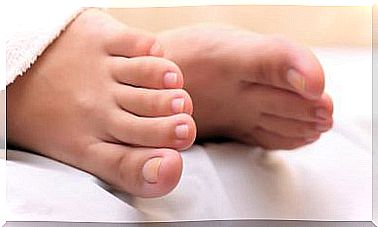Insomnia: A Dangerous Enemy For Your Heart
Yes, insomnia is one of the most dangerous enemies for the heart. However, in the popular sphere, this is not always taken into account or explicitly mentioned. In fact, its impact is often generalized simply by stating that “insomnia affects quality of life.”
Insomnia prevents rest and this, over time, affects the body’s metabolism and other aspects, such as cardiovascular health. Those who suffer from it constantly feel tired, with the feeling that they have not managed to regain their energy.
According to a work published in the European Heart Journal, people who suffer from chronic insomnia are more likely to suffer from a heart problem. Here we tell you more about it.
Those responsible for this study point out something important: having insomnia does not necessarily mean that you are going to have a heart attack. In other words, it is not a cause and effect relationship.
What it means is that we are more likely to suffer from a heart problem, and this, in turn, forces medical institutions to implement prevention strategies with which to avoid irreversible consequences.

What should you pay attention to?
Despite the fact that heart problems are often asymptomatic, there are certain signals that the body sends that should be monitored as soon as they are detected. Some of them are:
- Slow reflexes.
- General feeling of heaviness.
- Tiredness. It is very difficult for us to “get going”.
- Difficulty paying attention as well as remembering information. Also, pay attention to the fact that it is difficult to make decisions quickly.
The person may also experience that they lose the ‘spark’ of creativity and this can be evidenced even in the lack of humor. This is partly due to the mental and physical exhaustion mentioned above.
It should be noted that, in some cases, alterations in the senses may occur, such as a reduction in the visual field or slowing of speech.
Insomnia and heart health
Let’s go back to the references of the mentioned study. For almost 11 years, the cases of more than 54,000 people between the ages of 20 and 89 were studied. Their cholesterol, blood pressure, and weight were controlled, and the presence of diabetes was taken into account, among other aspects.
The lifestyles of these people were noted, and possible symptoms of depression and anxiety, as well as cardiovascular history, were also assessed.
The researchers found that those who often suffered from insomnia were three times more likely to develop a heart problem than the population who did enjoy restful sleep.
Study conclusions
Scientists say that more tests should be done to obtain clearer data, although these first tests have already given them a clue that, possibly, the origin of the problem is in hormones such as adrenaline.
These types of hormones usually appear in the body in the face of states of fatigue or excitement, and force the heart to work harder. They raise the tension, involve a greater consumption of oxygen and, as a consequence, the heart muscles end up overloaded.
According to Dr. Julián Villacastín, director of the Cardiology Institute of this San Carlos Clinical Hospital in Madrid, the alteration of the transmitters involved in sleep ends up developing heart failure.
The most common disease that usually occurs due to insomnia is heart failure, such as myocardial infarction or damage to a heart valve.
The factors that can influence the development of heart problems are the following: having a family history, suffering from hypertension, diabetes mellitus.
Discover: The important thing is not to sleep more, but to sleep better
Simple keys to combat insomnia
1. Identify the cause
Is it due to stress? To some emotional problem? Do you suffer from restless legs? Do you suffer from night joint pain? Sometimes, some diseases or conditions can cause sleep problems and we must be aware of this possibility. Once you identify the cause, take the necessary measures to solve the problem, at its roots.

2. Improve your lifestyle habits
Everything is a matter of testing. The fact of making small changes and, above all, improving our lifestyle habits helps fight insomnia. Take note of these tips:
- Take care of your schedules and keep them. Try to eat dinner 2 hours before going to sleep; always go to bed at the same time.
- Go for a walk at least three to four hours before you go to sleep. If we exercise half an hour before going to bed, we will be too excited. It is not recommended.
- Ideally, two hours before going to bed, we close and turn off all electronic devices, stop consulting our cell phone or computer and relax.
- Take a hot shower, infuse yourself with valerian and lavender, grab a book and “free your mind.”
- Keep in mind that to get adequate sleep, the room temperature must be low. You sleep better between 15ºC and 21ºC.
- The mattress must be comfortable, neither too hard nor too soft, so that it adapts well to our body.
When to go to the doctor?
If insomnia persists and lasts too long, it is essential that you go to your doctor as soon as possible. The professional will evaluate you and, depending on your state of health, will give you the most appropriate guidelines that you should follow. Also, do not neglect the periodic control that you indicate.









